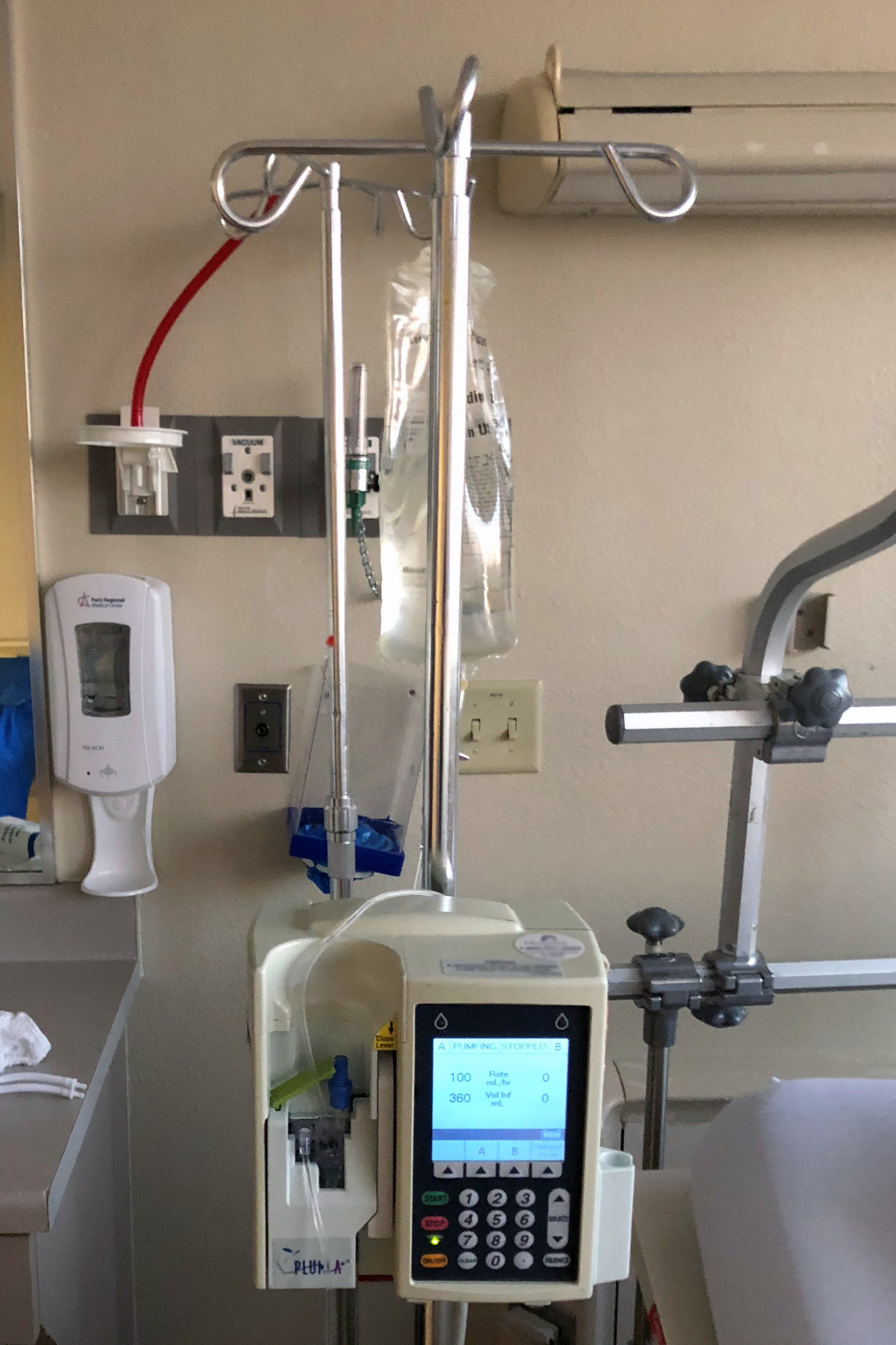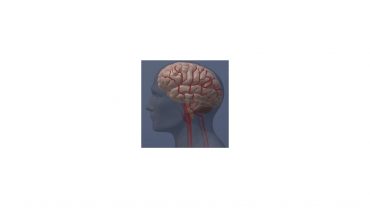Research Highlights:
- A new scoring system helped predict the risk of stroke among adults hospitalized with COVID-19 and was comparable to a computer-based risk estimator.
- The scoring system used six clinical factors to predict risk of stroke after COVID-19 infection: history of stroke, no fever at time of hospital admission, no history of pulmonary disease, high white blood cell count, history of high blood pressure and elevated systolic blood pressure.
Embargoed until 4 a.m. CT/5 a.m. ET Thursday, Feb. 3, 2022
(NewMediaWire) – February 03, 2022 – NEW ORLEANS – A new scoring system helped predict the risk of stroke among adults hospitalized with COVID-19 and was comparable to a computer-based risk estimator, according to preliminary research to be presented at the American Stroke Association’s International Stroke Conference 2022, a world premier meeting for researchers and clinicians dedicated to the science of stroke and brain health to be held in person in New Orleans and virtually, Feb. 8-11, 2022.
 As the science community continues to learn more about COVID-19, some evidence suggests that people with a COVID-19 infection have an increased risk of stroke and worse stroke outcomes.
As the science community continues to learn more about COVID-19, some evidence suggests that people with a COVID-19 infection have an increased risk of stroke and worse stroke outcomes.
Researchers developed a scoring system using information from the American Heart Association’s COVID-19 Registry, a nationwide collection of health data on COVID-19 treatment and cardiovascular disease risk factors for people hospitalized with COVID-19. In addition to patients’ age, race and ethnicity, the registry includes other medical conditions, medications, and vital signs and lab values at admission.
Based on the health data from the registry, the researchers identified six clinical factors that helped predict the risk of stroke. These factors included: 1) history of stroke; 2) no fever at the time of hospital admission; 3) no history of pulmonary disease; 4) high white blood cell count; 5) history of high blood pressure; and 6) high systolic blood pressure at the time of hospital admission.
“Of the six factors linked to increased risk of stroke, one was ‘no history of pulmonary disease’ and another was ‘no fever.’ This seemed a bit surprising because patients with lung disease and those with high fever are at higher risk to develop severe COVID-19,” said Alexander E. Merkler, M.D., M.S., lead study author and an assistant professor of neurology at Weill Cornell Medical College/New York Presbyterian Hospital in New York City.
The study examined registry data for about 21,420 adults hospitalized with COVID-19 at 122 health care centers in the U.S. between March 2020 – March 2021. Patients’ average age was 61, and 54% were men. More than one-third of participants were white adults, about one-quarter were Black adults and one-quarter were Hispanic adults; the racial or ethnic group for the remaining 10% of study participants was either Asian, unknown or not identified in the records.
Overall, 1 in 65 adults hospitalized with COVID-19 had a stroke. Registry patients with four or more of the clinical risk factors were more than 10 times as likely to have a stroke compared to those with fewer factors. To verify the accuracy of the scoring system, the results were compared to a computer method based on artificial intelligence. The clinical scoring system predicted the risk of stroke as accurately as the computer method.
“This clinical risk score may help professionals better understand which patients with COVID-19 are at increased risk for stroke, and, therefore, monitor them more closely and provide treatment more quickly,” Merkler said. “Future research could focus on specific treatments that may benefit people with COVID-19 who are at higher risk for stroke.”
The American Heart Association created the COVID-19 CVD Registry within weeks of the declaration of the global pandemic to rapidly collect and provide insights about people hospitalized with the SARS-CoV-2 virus. The Association’s Get With The Guidelines registry infrastructure allowed for rapid data collection, including over 63,000 patient records from more than 170 registry sites enrolled (data as of 12/07/21).
The 5th leading cause of death in the U.S., stroke is a medical emergency that occurs when a blood vessel to the brain becomes blocked or bursts, preventing oxygen and nutrients from reaching the brain. Stroke is a major cause of long-term disability. Rapid treatment is critical to prevent brain damage or death, so it is important to recognize the warning signs of stroke and the correct action. The abbreviation F.A.S.T. stands for face drooping, arm weakness, speech difficulty, time to call 9-1-1.
The American Heart Association supports COVID-19 vaccination including boosters as the best way to reduce the risk of COVID-19 infection and to prevent severe disease or death, especially among people with cardiovascular disease or other medical conditions.
A limitation of the study is that it did not include information on in-hospital events such as mechanical ventilation or acute respiratory distress syndrome, which may have affected stroke risk.
Study co-authors are Cenai Zhang, M.S.; Ivan Diaz, Ph.D.; Carolyn Stewart, B.A.; Saad Mir, M.D.; Neal S. Parikh, M.D., M.S.; Santosh Murthy, M.D., M.P.H.; Ning Lin, M.D.; Ajay Gupta, M.D., M.S.; Costantino Iadecola, M.D., FAHA; Mitchell S.V. Elkind, M.D., M.S., M.Phil., FAHA; Hooman Kamel, M.D., M.S.; and Babak B. Navi, M.D., M.S. The list of authors’ disclosures is available in the abstract.
The study was funded by Weill Cornell Medical College.
Statements and conclusions of studies that are presented at the American Stroke Association and American Heart Association’s scientific meetings are solely those of the study authors and do not necessarily reflect the Association’s policy or position. The Association makes no representation or guarantee as to their accuracy or reliability. Abstracts presented at the Association’s scientific meetings are not peer-reviewed, rather, they are curated by independent review panels and are considered based on the potential to add to the diversity of scientific issues and views discussed at the meeting. The findings are considered preliminary until published as a full manuscript in a peer-reviewed scientific journal.
The Association receives funding primarily from individuals; foundations and corporations (including pharmaceutical, device manufacturers and other companies) also make donations and fund specific Association programs and events. The Association has strict policies to prevent these relationships from influencing the science content. Revenues from pharmaceutical and biotech companies, device manufacturers and health insurance providers and the Association’s overall financial information are available here.
Additional Resources:
The American Stroke Association’s International Stroke Conference (ISC) is the world’s premier meeting dedicated to the science and treatment of cerebrovascular disease. ISC 2022 will be held in person in New Orleans and virtually, Feb. 8-11, 2022. The three-day conference will feature more than 1,500 compelling presentations in 17 categories that emphasize basic, clinical and translational sciences as research evolves toward a better understanding of stroke pathophysiology with the goal of developing more effective therapies. Engage in the International Stroke Conference on social media via #ISC22.
About the American Stroke Association
The American Stroke Association is devoted to saving people from stroke — the No. 2 cause of death in the world and a leading cause of serious disability. We team with millions of volunteers to fund innovative research, fight for stronger public health policies and provide lifesaving tools and information to prevent and treat stroke. The Dallas-based association officially launched in 1998 as a division of the American Heart Association. Connect with us on stroke.org, Facebook, Twitter or by calling 1-888-4STROKE.
###
For Media Inquiries and AHA Expert Perspective:
AHA Communications & Media Relations in Dallas: 214-706-1173; ahacommunications@heart.org
Karen Astle: 214-706-1392; karen.astle@heart.org
For Public Inquiries: 1-800-AHA-USA1 (242-8721)
heart.org and stroke.org
